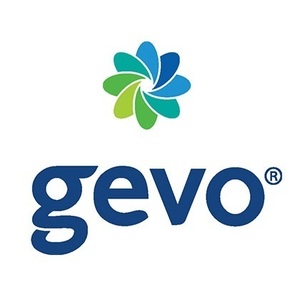Gevo, Praj to commercialize sustainable aviation fuel in India

August 19, 2020
BY Gevo Inc.
Gevo Inc. and Praj Industries Ltd. have announced that they have signed a binding, definitive master framework agreement (MFA) to collaborate on providing renewable, low carbon, low particulate, sustainable aviation fuel (SAF) and renewable premium gasoline in India and neighboring countries. This follows an earlier announcement in April 2019 between both parties regarding the commercialization of renewable isobutanol, SAF and renewable premium gasoline.
Gevo will license its technology and Praj will provide technology, plant equipment and EPC services to sugar mills and ethanol plants to produce renewable isobutanol from 1G feedstock (cane juice, cane molasses, sugar syrup, etc.) and 2G feedstock (cellulosic biomass like straws, bagasse, etc.) The renewable isobutanol will be aggregated and transferred to various refineries. Gevo will also license its technology and Praj will provide technology, plant equipment and EPC services to refineries for converting renewable isobutanol into Sustainable Aviation Fuel and premium gasoline through the ASTM-approved pathway of Alcohol-to-Jet (ATJ).
According to Apte Research Group, University of California, Berkley, particle air pollution in South Asia ranks among the most severe in the world. In India alone, hundreds of millions of people are exposed to PM2.5 concentrations, an order of magnitude greater than World Health Organization guidelines. The use of SAF, blended with aviation turbine fuel, can contribute significantly to mitigating the risk associated with particulate air pollution.
Advertisement
Advertisement
SAF should find applications in commercial aviation as well as in the defense sector in India. Praj and Gevo supplied the sample of SAF produced by Gevo to the Indian Air Force (IAF). The Indian Air Force tested the sample and found it to be meeting the desired specifications as per relevant ASTM standards. Further tests are underway at IAF.
“Jet fuel and gasoline made with our technology are made from renewable resources, reduce greenhouse gasses, and eliminates particulates,” said Patrick Gruber, CEO of Gevo. “We are pleased to be working with Praj, moving down the commercialization path and that the Indian Air Force has the vision to see that the domestic supply of jet fuel makes sense. We also recognize that products like ours have the potential to reduce air pollution.”
Speaking on the occasion, Pramod Chaudhari, Executive Chairman, Praj Industries, said, “We are happy to partner with Gevo, a leading renewable chemicals and advanced biofuels company to expand the commercial-scale use of SAF in India. Praj’s enfinityTM technology under Bio-MobilityTM platform, combined with Gevo’s ATJ, will create a winning solution to address the growing need of sustainable decarbonization. This will also help India in achieving energy security, reducing import bill and meeting climate change goals.”
Pursuant to the terms of the MFA, Gevo is providing a license to Praj, which will allow the latter to carry out basic engineering and design package services, supply equipment, build plants and use jointly developed process design package to produce renewable isobutanol for plant operators who are licensed by Gevo.
Advertisement
Advertisement
In addition, Gevo is also providing a license to Praj, which will allow the latter to carry out basic engineering and design package services, supply equipment and build plants to convert renewable isobutanol into renewable gasoline and SAF for plant operators who are licensed by Gevo.
A copy of the MFA has been filed with the U.S. Securities and Exchange Commission on Form 8-K.
Related Stories
Calumet Inc. on Aug. 8 confirmed its Montana Renewables biorefinery is currently running at full capacity. An initial phase of the company’s MaxSAF initiative remains on track to boost SAF capacity to up to 150 MMgy by mid-2026.
Marathon Petroleum Corp. on Aug. 5 released second quarter financial results, reporting improved EBITDA for its renewable diesel segment. The company primarily attributed the improvement to increased utilization and higher margins.
Chevron Corp. on Aug. 1 confirmed the company started production at the Geismar renewable diesel plant in Louisiana during the second quarter after completing work to expand plant capacity from 7,000 to 22,000 barrels per day.
The public comment period on the U.S. EPA’s proposed rule to set 2026 and 2027 RFS RVOs and revise RFS regulations closed Aug. 8. Biofuel groups have largely expressed support for the proposal but also outlined several ways to improve the rulemaking.
In celebration of World Biodiesel Day, MOL Group on Aug. 8 announced SAF was successfully produced for the first time at INA’s Rijeka Refinery during a pilot project to process biocomponent. Renewable diesel was also produced.
Upcoming Events










